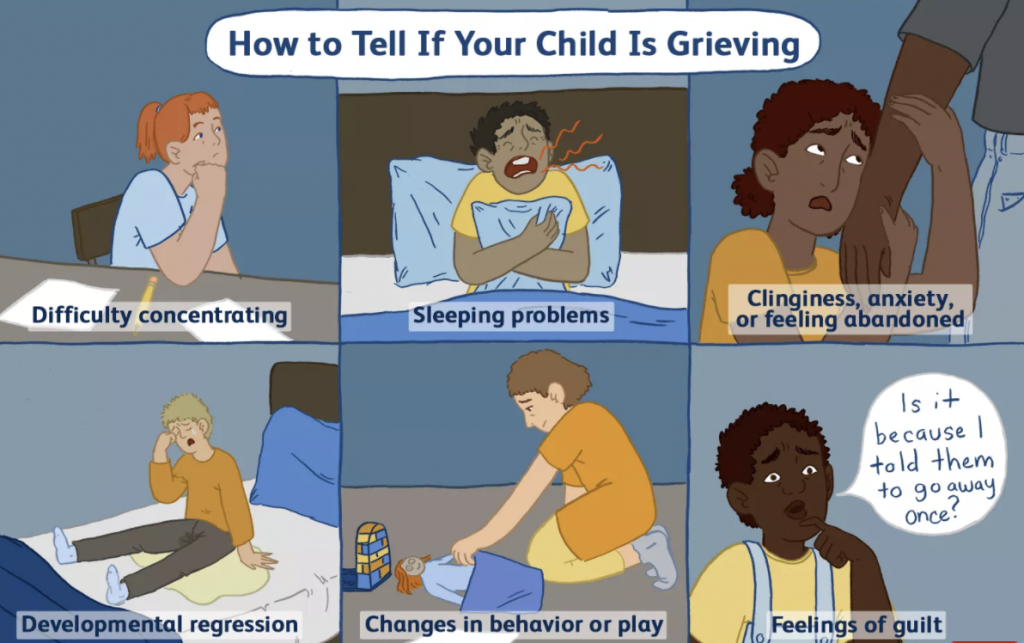
Gilmartin, B. (2018). Understanding Your Child’s Emotions [Image]. Retrieved from https://www.verywellfamily.com/signs-of-grief-in-children-and-how-to-help-them-cope-4174245
The surge of emotions commonly occurs with the grieving process of a loved one.
According to Wolfelt (2013), some of the common emotions that accompany the death of a parent include:
Sadness: many people expect to feel sadness but they do not realize the level of sadness that they feel with the loss.
Relief: Some people feel a sense of relief if their parent was sick/suffering prior to their death
Anger: many people feel anger if they had a dysfunctional relationship with the parent that died, this usually accompanies unresolved anger toward that parent. Others feel anger because the relationship with their parent has ended or their parent has died at a very early age and they believe it to be “unfair”
Guilt: often seen with dysfunctional relationships between the parent and child, this often accompanies the feeling of wishing you resolved the conflict, or wished that you could say/un-say things. Some wish that they had spent more time with their parent.
According to Mendoza (2016) humour with death is often an emotion that makes people uncomfortable. This is often seen as the body and mind’s way to cope with the loss. The use of humour is used to decrease the negative effects of stress (Mendoza, 2016).
According to Camacho, Pérez-Nieto, and Gordillo (2018), emotional regulation is extremely important decreasing the intensity, duration, and effects of the grieving emotions. Emotional regulation is the control of emotions and self-reflection of what is being felt, when it is being felt and individual ways of coping with the emotions. It is important to be aware and accept these emotions when they come to be able to appropriately grieve and overcome emotions. Emotional regulation aids in controlling emotional functioning and healthy coping of the loss (Camacho, Pérez-Nieto & Gordillo, 2018).